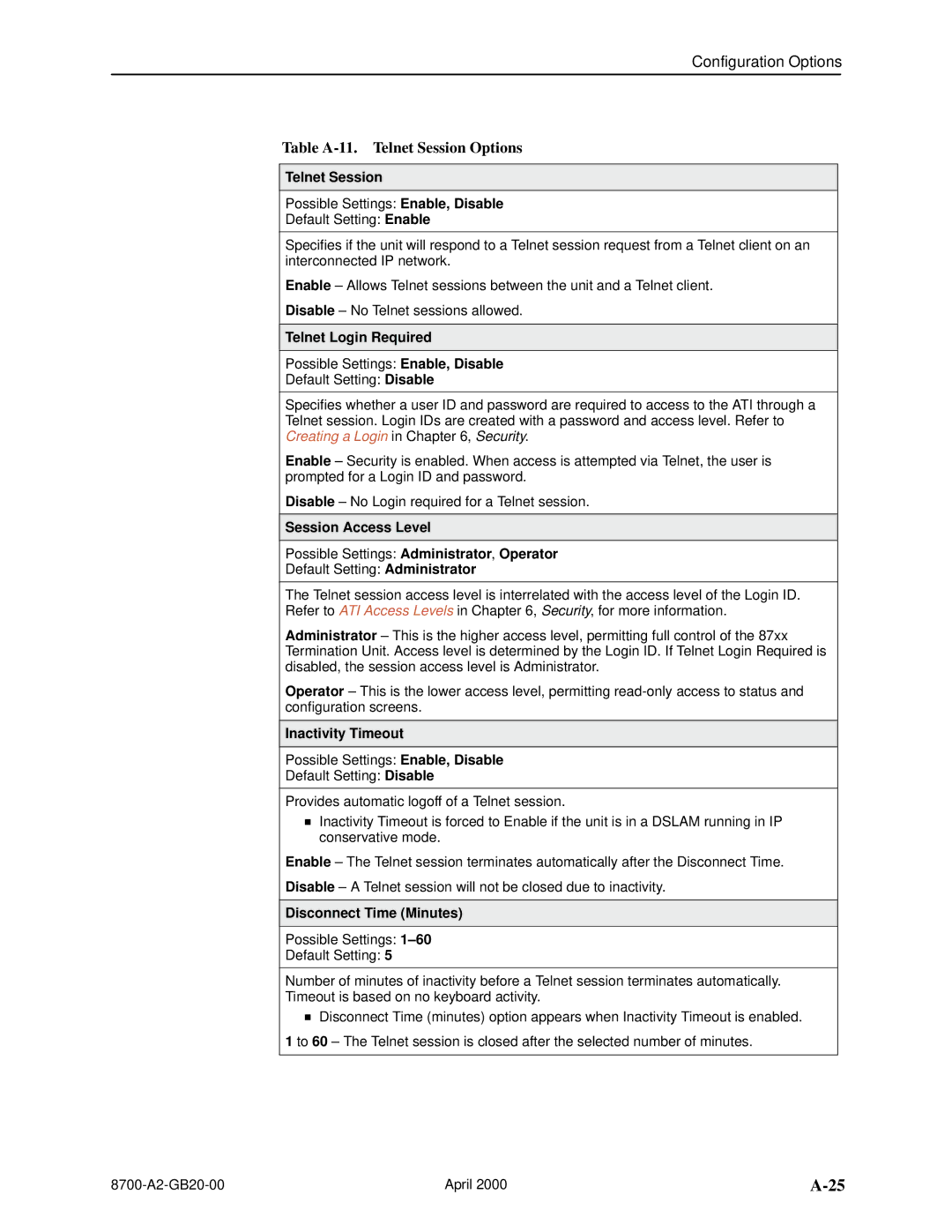
Configuration Options
Table A-11. Telnet Session Options
Telnet Session
Possible Settings: Enable, Disable
Default Setting: Enable
Specifies if the unit will respond to a Telnet session request from a Telnet client on an interconnected IP network.
Enable – Allows Telnet sessions between the unit and a Telnet client.
Disable – No Telnet sessions allowed.
Telnet Login Required
Possible Settings: Enable, Disable
Default Setting: Disable
Specifies whether a user ID and password are required to access to the ATI through a Telnet session. Login IDs are created with a password and access level. Refer to Creating a Login in Chapter 6, Security.
Enable – Security is enabled. When access is attempted via Telnet, the user is prompted for a Login ID and password.
Disable – No Login required for a Telnet session.
Session Access Level
Possible Settings: Administrator, Operator
Default Setting: Administrator
The Telnet session access level is interrelated with the access level of the Login ID. Refer to ATI Access Levels in Chapter 6, Security, for more information.
Administrator – This is the higher access level, permitting full control of the 87xx Termination Unit. Access level is determined by the Login ID. If Telnet Login Required is disabled, the session access level is Administrator.
Operator – This is the lower access level, permitting
Inactivity Timeout
Possible Settings: Enable, Disable
Default Setting: Disable
Provides automatic logoff of a Telnet session.
HInactivity Timeout is forced to Enable if the unit is in a DSLAM running in IP conservative mode.
Enable – The Telnet session terminates automatically after the Disconnect Time.
Disable – A Telnet session will not be closed due to inactivity.
Disconnect Time (Minutes)
Possible Settings:
Default Setting: 5
Number of minutes of inactivity before a Telnet session terminates automatically. Timeout is based on no keyboard activity.
HDisconnect Time (minutes) option appears when Inactivity Timeout is enabled.
1 to 60 – The Telnet session is closed after the selected number of minutes.
April 2000 |
